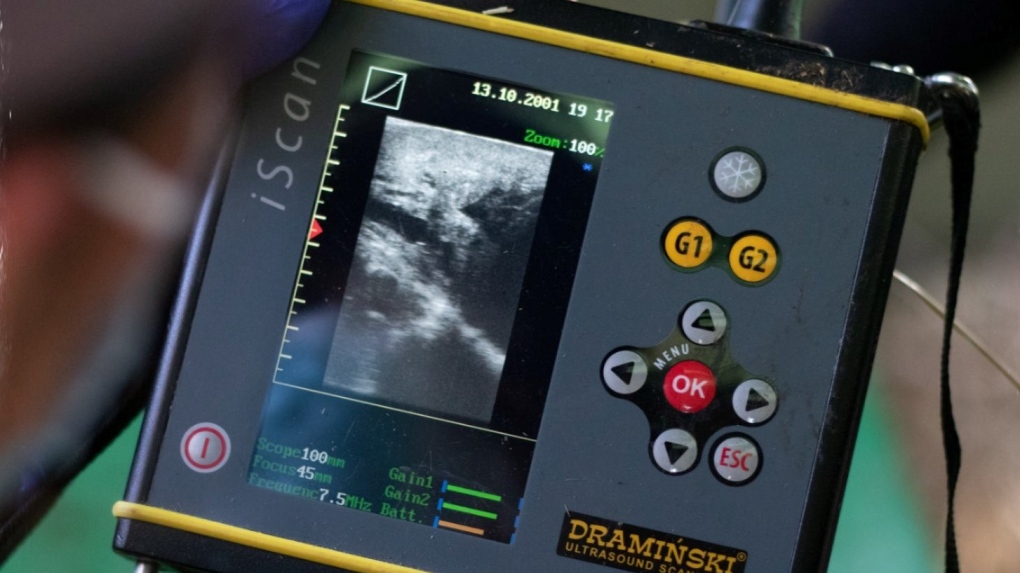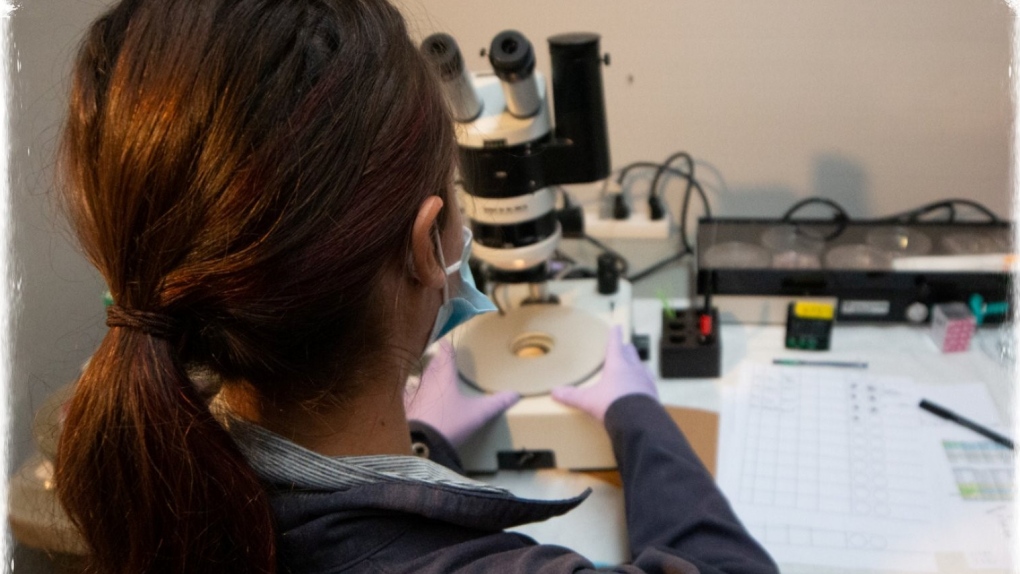Four wood bison at Toronto Zoo are pregnant thanks to reproductive technology
The Toronto Zoo announced the pregnancy of four wood bison, a threatened species in Canada due to habitat loss and disease, through the use of reproductive technology.
The zoo issued a statement on Thursday, saying the pregnancies come after 13 years of research with the University of Saskatchewan on advancing assisted reproductive techniques for wood bison.
“We are so excited to do our part to help ensure a better future for wood bison. This research is critical to genetic diversity that is necessary to conservation efforts for wild bison populations across northwestern Canada” Dr. Gabriela Mastromonaco, the director of conservation science with the zoo, said.

“The loss of akeystone species such as bison would significantly change the landscape and alter the ecosystems that depend on them, which would ultimately threaten the community of species that they co-exist with.”
The Toronto Zoo currently cares for a herd of five male and 18 female wood bison. The zoo said that from mid-September into December, its reproductive sciences team spent days with the wildlife care team “moving bison through the handling system to undergo artificial inseminations or embryo transfers.”
“Every step in the process could have a large impact on the success of the bison’s pregnancies so each task is done with the utmost care for both the research and the wellbeing of our bison – from freezing and thawing the sperm and embryos, to transferring them to the females, to training and caring for the herd,” the zoo said in their statement on Thursday.

The zoo said it is “cautiously optimistic” that healthy bison calves will arrive in the spring, but will monitor the bison females very closely over the winter as the pregnancies progress.
Historically, wood bison were found across the boreal forests of northwestern Canada and Alaska. Due to changes in habitat, herds are now small and disconnected and remain only in northern British Columbia and Alberta as well as southern Northwest Territories and Yukon.
“Although wood bison have been downlisted from "endangered" to "threatened" since 1988, on-going diseases, such as tuberculosis and brucellosis, in wild wood bison populations continue to threaten this species,” the zoo stated. “Reproductive technologies, such as artificial insemination and in vitro fertilization, are important tools for improving the genetic management and connectivity of small populations.”

“These techniques will help us overcome the challenges of managing the endemic disease threatening free-ranging wood bison herds, and ultimately allow us to restore genetically diverse disease-free herds in the wild.”
CTVNews.ca Top Stories

Trump threatens to try to take back the Panama Canal. Panama's president balks at the suggestion
Donald Trump suggested Sunday that his new administration could try to regain control of the Panama Canal that the United States “foolishly” ceded to its Central American ally, contending that shippers are charged “ridiculous” fees to pass through the vital transportation channel linking the Atlantic and Pacific Oceans.
Wrongfully convicted N.B. man has mixed feelings since exoneration
Robert Mailman, 76, was exonerated on Jan. 4 of a 1983 murder for which he and his friend Walter Gillespie served lengthy prison terms.
opinion Christmas movies for people who don't like Christmas movies
The holidays can bring up a whole gamut of emotions, not just love and goodwill. So CTV film critic Richard Crouse offers up a list of Christmas movies for people who might not enjoy traditional Christmas movies.
Can the Governor General do what Pierre Poilievre is asking? This expert says no
A historically difficult week for Prime Minister Justin Trudeau and his Liberal government ended with a renewed push from Conservative Leader Pierre Poilievre to topple this government – this time in the form a letter to the Governor General.
Man handed 4th distracted driving charge for using cell phone on Hwy. 417 in Ottawa
An Ottawa driver was charged for using a cell phone behind the wheel on Sunday, the fourth time he has faced distracted driving charges.
More than 7,000 Jeep SUVs recalled in Canada over camera display concern
A software issue potentially affecting the rearview camera display in select Jeep Wagoneer and Grand Cherokee models has prompted a recall of more than 7,000 vehicles.
'I'm still thinking pinch me': lost puppy reunited with family after five years
After almost five years of searching and never giving up hope, the Tuffin family received the best Christmas gift they could have hoped for: being reunited with their long-lost puppy.
10 hospitalized after carbon monoxide poisoning in Ottawa's east end
The Ottawa Police Service says ten people were taken to hospital, with one of them in life-threatening condition, after being exposed to carbon monoxide in the neighbourhood of Vanier on Sunday morning.
New York City police apprehend suspect in the death of a woman found on fire in a subway car
New York City police announced Sunday they have in custody a “person of interest” in the early morning death of a woman who they believe may have fallen asleep on a stationary subway train before being intentionally lit on fire by a man she didn't know.


































